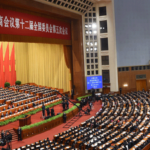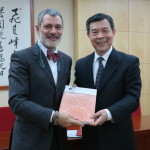Members Analysis, National People's Congress, by APCO worldwide Go back »
2014-03-17 | Beijing
During the first year of the Xi administration power was consolidated and its desire to enact substantial reforms was made clear with a series of measures including bold speeches about reform and reenacting Deng Xiaoping’s “Southern tour.” In the past five months, starting with the Third Plenum and ending with this year’s NPC, the leadership has plotted out and refined these reform objectives, and now it is moving toward serious implementation.
While few new policies were initiated, the ‘two meetings’ (liang hui) of China’s legislative chambers, the National People’s Congress (NPC) and the Chinese People’s Consultative Congress (CPPCC), were designed to demonstrate consensus behind the government’s reform agenda and lay out priorities for the coming months. The priorities for 2014 that have emerged from the liang hui appear to be financial reform, fiscal reform and streamlining China’s state-owned sector. The government also made modest moves to shift away from its historical focus on growth targets in addition to signaling its determination to respond to the public’s concerns about pollution and terrorism. The implementation of this bold reform agenda will provide both opportunities and challenges for foreign companies, not least of which will be keeping up with the pace of China’s most activist government in decades.
Please click here to download the full report.
Source: APCO Worldwide


